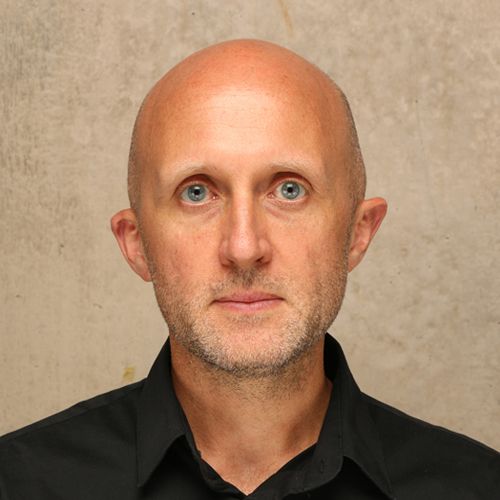Jul 01 2020, by Fleetwood Urban (Marketing)
Taking A Global View
Exclusive interview with Dr Ed Wall, Academic Portfolio Lead, Landscape and Urbanism, University of Greenwich in London
Founder of Project Studio in the UK, Dr Ed Wall is a globally-renowned landscape architect. He’s also the lead academic at the University of Greenwich in London, one of the world’s top landscape architecture colleges, and a Visiting Professor at Italy’s Politecnico di Milano. We spoke recently with Ed to get his thoughts and insights into preparing the next generation of landscape architects and urban designers.

Dr Ed Wall

University of Greenwich, London
FWD>THINKING: Thank you very much for speaking with us, Ed. How would you describe the current levels of student interest in landscape architecture and urban design?
ED WALL: I think there’s a lot of interest in the landscape architecture and urbanism programmes at the moment. We’re also seeing the cohorts, certainly here at the University of Greenwich, becoming more and more diverse. We take a lot of care in our process of interviewing and selecting students to ensure diversity across age, gender, ethnicity, background and experience and geography. As the students learn a lot from each other, this diversity allows a stronger understanding of landscape as a physical and relational entity.
FWD>THINKING: What are some of the biggest issues or trends you’re noticing right now?
ED WALL: Design education needs to understand its responsibilities to society and the world, as well as opportunities. Design is political and our creative process has a lot to offer discourses and struggles that go beyond an aesthetic. For example, at Greenwich this year we’ve focused on designing for direct action as a means to explore ecological justice and urban equity. To do this, we have to think about how we design and what are the priorities for us in the process.
FWD>THINKING: How has the way landscape architecture students learn evolved in the past decade or so?
ED WALL: On a day-to-day basis, students and graduates are having to adapt to new digital platforms and project structures. But young people are also having to address greater challenges, including the climate crisis and social injustice. These situations offer interesting possibilities for creative responses, but they also come with complex ethical conflicts and decisions that impact their future careers.
FWD>THINKING: What are likely to be some of the most significant changes to the way students learn in the next decade?
ED WALL: There’s a need for students to forge new and distinct forms of practice. At Greenwich we’ve been exploring how different ways of working can come to inform landscape architecture practice. This includes students considering their role as landscape architects within environmental protests, such as the Extinction Rebellion, as well as how they can inform collective spaces and democratic process. The students are acutely aware of the world around them and they’re interested in how their work can make a difference.
FWD>THINKING: What are some of the pressures facing landscape architecture institutions in 2020?
ED WALL: I think the answer would be different at different schools and universities, but also different countries. In the UK, one of the challenges for us is attracting young people into the profession of landscape architecture. Many people don’t know about landscape architecture as a career option and there are also many misunderstandings about what it actually involves. One of our aims at Greenwich is to share with students the range of potential careers that are possible and to support the students to develop unique forms of landscape architecture practice.
FWD>THINKING: University of Greenwich is widely regarded as one of the world’s top landscape architecture and urban design colleges. What makes your programs stand out from others?
ED WALL: We combine our long history of teaching landscape architecture with a drive to experiment with new ideas and address contemporary challenges. For example, the programmes are very different now to when landscape architects such as Sir Geoffrey Jellicoe taught at Greenwich (Jellicoe was the Founding President of the International Federation of Landscape Architects and a Lecturer at the University of Greenwich from 1979 to 1989), and I’m sure they will be very different in another 5 or 10 years. However, the consistent approach that I see the school has taken is to be inventive and remain at the forefront of landscape architecture design and research.
FWD>THINKING: How hard is it to remain relevant as an education institution in 2020? As a management team, where are most of your energies focused?
ED WALL: I don’t think it’s that difficult to remain relevant because there are so many important issues that can be explored through landscape architecture. Whether it’s the climate crisis or the current health pandemic, it’s important landscape architecture is able to use its creative and ethical practice to inform and lead the discourses to address these issues. A university is only as good as its students, its academics, and the leadership it takes on these types of issues. At Greenwich we work hard to maintain a leading academic and research environment to support the ambitions of the students and staff.
FWD>THINKING: How would you describe industry employment prospects for the current generation of landscape architecture students?
ED WALL: At present, the prospects are great. The Landscape Institute in the UK makes clear the need for more students and graduates coming into the profession in order to fill the many job vacancies. Most students will make it into the industry, but the key for us (as educators) is to equip them with the skills and confidence to get the best jobs and to lead future landscape practices.
FWD>THINKING: Based on all the things you’re seeing and hearing with the current student cohorts, how do you feel about the industry’s future?
ED WALL: I’m excited, especially about the opportunities that are open to young graduates and students. There’s a real need, both here in the UK but also globally, for new forms of landscape practice and I hope we see many of our current students taking the lead in forming these firms.



